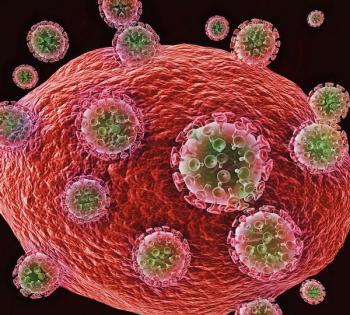
During the 2020 virtual Directions in Pharmacy® conference, Todd Brothers, PharmD, BCCCP, BCPS, presented a comprehensive overview of hyperkalemia to optimize patient care with the use of safe and effective pharmacotherapeutic agents.

During the 2020 virtual Directions in Pharmacy® conference, Todd Brothers, PharmD, BCCCP, BCPS, presented a comprehensive overview of hyperkalemia to optimize patient care with the use of safe and effective pharmacotherapeutic agents.

At the 2020 virtual Directions in Pharmacy® conference, Jacob Kettle, PharmD, BCOP, discussed managing immune-related adverse effects (AEs) associated with immune checkpoint inhibitor therapies.

During the 2020 virtual Directions in Pharmacy® conference, experts presented a comprehensive overview of new and emerging agents for heart failure management and the role of the pharmacist.

The 2020 virtual Directions in Pharmacy® conference provided a comprehensive overview of influenza, including identifying at-risk patients and providing interventions to address vaccination misconceptions.

Antiretroviral therapy’s limitations lead to new efforts to treat the virus by neutralizing antibodies.

A well-drafted business continuity plan enables continued operations, mitigates potential risks.

Inflluenza treatment was a timely topic discussed during the 2020 virtual Directions in Pharmacy® conference.

Patients with relapsed or refractory lymphomas may benefit from CAR-NK cell immunotherapy and Have fewer adverse events.

Pharmaceutical treatments have been at a standstill, but promising drugs are on the horizon.

Automation helps pharmacists increase their role in patient care by promoting adherence.

Pharmacists should be vocal in objecting to unproven therapies for COVID-19 being widely used primarily based on wishful thinking.

As patients return to their routines of returning to pharmacies and the inevitable discussions about COVID-19 begin, it may be a good time to discuss the range of tests that the CDC recommends.

Pulmonary arterial hypertension is an uncommon disease characterized by smooth muscle and endothelial cell proliferation and progressive vasoconstriction of the small pulmonary arteries.

Myasthenia gravis is most commonly caused by binding of immunoglobulin G (IgG) antibodies to the postsynaptic acetylcholine receptor (AChR), although other receptors may also be involved.

Antimicrobial resistance has become a serious public health concern because of increased health care costs and significant morbidity and mortality.

Cancer medications contribute substantially to the cost of health care in the United States, with 8 of the 10 most expensive drugs indicated for the treatment of cancer